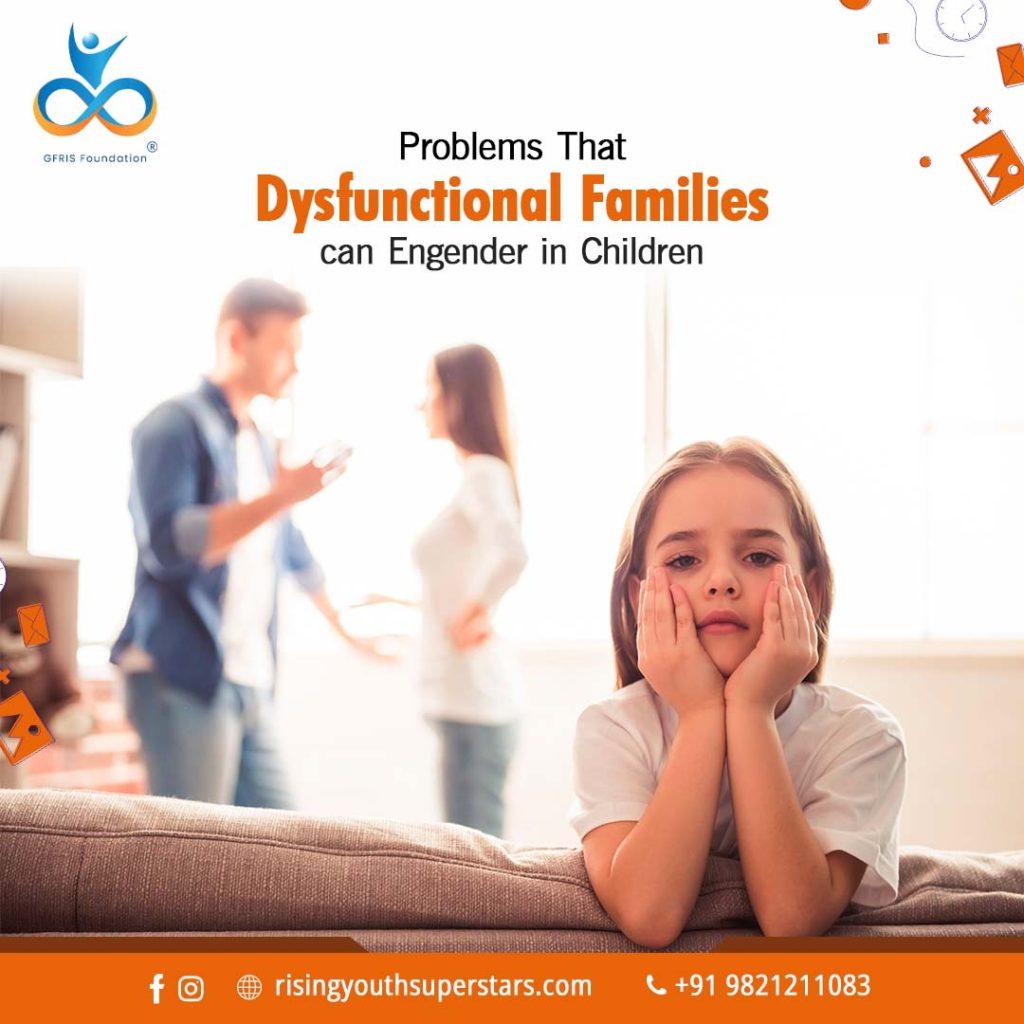Problems That Dysfunctional Families Can Engender In Children

A family has a significant influence on the children, for it is the primary source of security, love and appropriate values — a combination of these three forms the basis on which the children build their moral code.
The parenting style adopted at home significantly impacts the child’s development, and depending on how the child is raised, the effects can be either positive or negative.
The ideal parent/family is a myth. Parents are human too, and thus, flawed. Children can deal with being subject to the occasional angry outburst, provided an exhibition of love and understanding helps counter it.
A dysfunctional family sees lots of internal conflicts and ineffective communication. Further, the family members are unable to experience the closeness they would typically expect. Additionally, other signs can be observed in dysfunctional families.
In such families, abuse or neglect of children is common, and other family members are compelled to accommodate and enable negative behaviour. Being part of a dysfunctional family can leave children emotionally scarred, the effect of which may be with them throughout their lives.
The commonly observed effects of dysfunctional families on children are:
- Low Self-Esteem:
When children observe troubling situations around them, they believe they cause it. Since the complications are in no way related to them, their efforts to fix the problem show no results. This makes them feel like failures and feel that nothing they do is good enough. Over time, this leads to the development of low self-esteem.
- Self-Destructive Behavior:
Children in dysfunctional families often lack parental guidance and are largely left alone. Hoping for some attention, the child starts displaying a tendency to rebel. The child may exhibit self-destructive behaviour, such as the consumption of alcohol or drugs. They may also turn to bullying or petty theft to gain attention.
- Adopting Roles They are Not Ready For:
In dysfunctional families, children may find themselves stepping into roles they are not prepared for. The most crucial one is that of the caretaker, as the parents may be unable or unwilling to carry out the role. Handling roles they are not ready for exposes children to a lot of undue pressure and stress at a young age. The result is a series of ill effects, including deterioration of physical and mental health.
Growing up in a problematic environment impedes their ability to deal with stressful situations, besides affecting their overall development.
- Troubled Relationships:
Children learn from what they experience around them. Being a part of a dysfunctional family makes them believe this is the norm among all relationships, which clouds the relationships they form as adults. When they become parents, instead of embracing the ideal way to guide their offspring, they borrow from the same rules they had to follow. Thus the vicious cycle of being part of a dysfunctional family continues.
Children from such families may also become loners in adulthood and may be unable to form meaningful relationships.
- Anxiety and Depression Problems:
Growing up in unstable or unpredictable conditions resulting from being part of a dysfunctional family may have adverse side effects. If the distress experienced by the child is long-drawn, it may manifest into psychological conditions such as anxiety or depression and even post-traumatic stress disorder.
If you are young person who is a part of a dysfunctional family, you can implement the following tips to safeguard your mental peace and emotional well-being.
- Accepting and understanding that as a young person, you are not at fault for the toxic behaviour of the parent(s).
- Reach out to any supportive person like a teacher or a relative who understands and shows empathy.
- Focus on developing a relationship with people who are empathetic and compassionate.
- Be sure to set firm limits, and don’t let the toxic parent mistreat you, even if you have to cut back on your interaction with them.


Leave a Reply